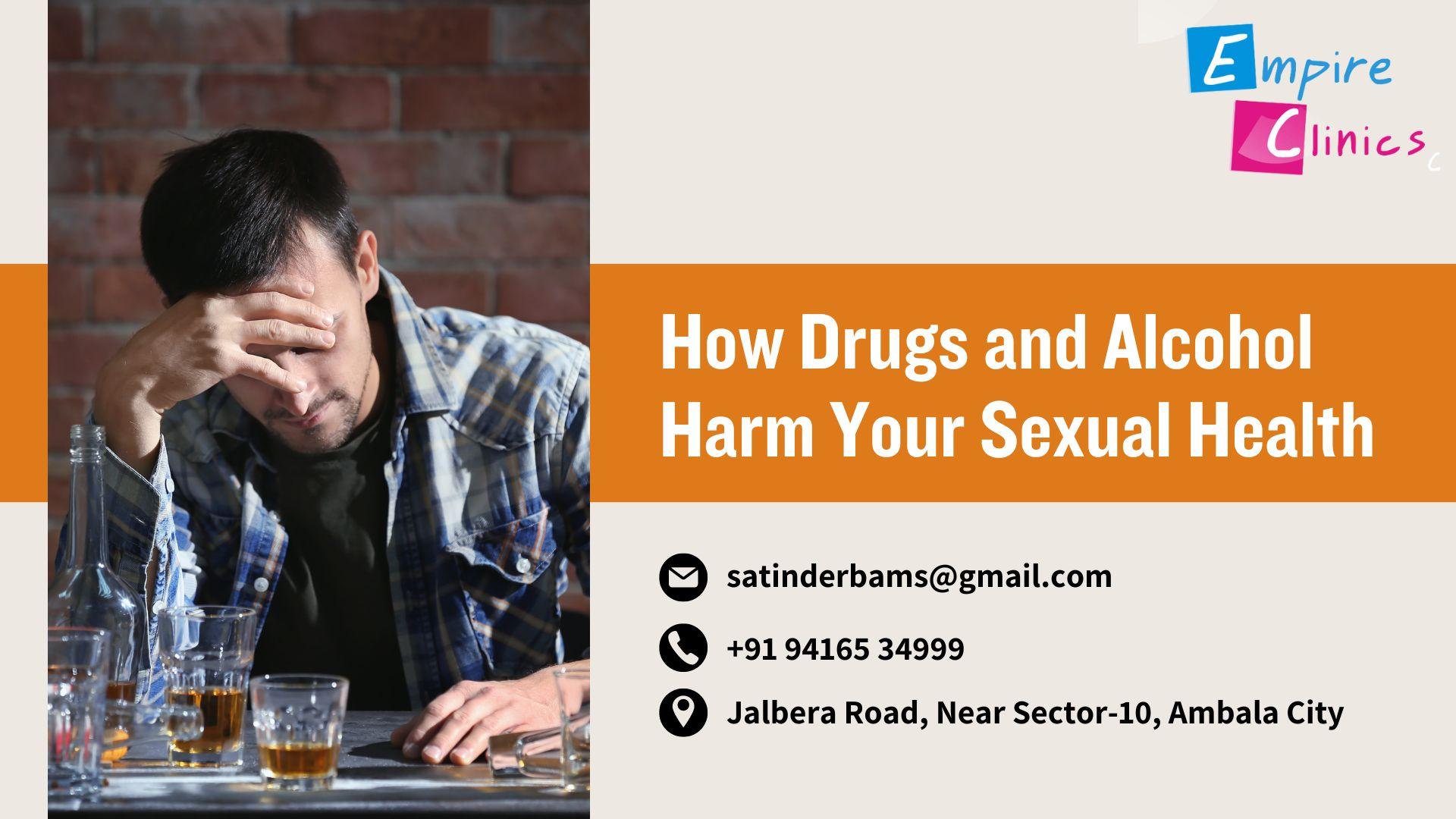Substance abuse, including the misuse of drugs and alcohol, has profound effects on various aspects of life, including sexual health and experiences. While some individuals might use these substances in the belief that they enhance sexual pleasure or performance, the reality is often quite the opposite. This article explores the ways in which drugs and alcohol can diminish sexual experiences, highlighting both the physiological and psychological impacts.
Table of Contents
Physiological Impacts
1. Erectile Dysfunction and Impotence
Alcohol and many drugs, particularly depressants, can interfere with the body's ability to maintain an erection. Alcohol is a central nervous system depressant that can reduce blood flow to the penis, making it difficult to achieve or maintain an erection. Long-term alcohol abuse can lead to permanent damage, resulting in chronic erectile dysfunction.
2. Decreased Libido
Substance abuse can significantly decrease sexual desire. Alcohol, for instance, lowers testosterone levels in men, which is crucial for maintaining libido. Drugs like opioids can also disrupt hormonal balance, leading to reduced sexual interest and desire in both men and women.
3. Reduced Sensation and Pleasure
Many drugs numb the senses, which can reduce sexual pleasure and sensation. Cocaine, methamphetamine, and heroin, for example, can dull the nerves responsible for sexual pleasure, making sex less enjoyable.
4. Delayed Ejaculation and Anorgasmia
Both alcohol and various drugs can lead to delayed ejaculation or anorgasmia (the inability to achieve orgasm). These substances interfere with the brain's neurotransmitters, which are essential for sexual function and the orgasmic response.
Psychological Impacts
1. Anxiety and Depression
Substance abuse is often linked with mental health issues such as anxiety and depression, both of which can adversely affect sexual health. Anxiety can lead to performance anxiety, making it difficult to enjoy sexual activities. Depression can decrease libido and overall interest in sexual activities.
2. Relationship Strain
Substance abuse often leads to significant relationship strain, which can further diminish sexual experiences. Trust issues, emotional disconnect, and increased conflicts are common in relationships where one or both partners abuse substances, leading to a decrease in sexual intimacy and satisfaction.
3. Impaired Judgment and Risky Behavior
Alcohol and drugs impair judgment, leading to risky sexual behaviors. This can include having unprotected sex, which increases the risk of sexually transmitted infections (STIs) and unintended pregnancies. The regret and guilt associated with these risky behaviors can further impact sexual health and overall well-being.
Long-Term Consequences
1. Chronic Health Issues
Long-term substance abuse can lead to chronic health issues that further impair sexual health. Liver disease, cardiovascular problems, and neurological damage are common among long-term alcohol and drug users. These conditions can all contribute to a decline in sexual function and desire.
2. Addiction and Dependency
Addiction itself can become a barrier to healthy sexual relationships. Individuals struggling with addiction may prioritize substance use over maintaining healthy relationships, leading to isolation and decreased sexual activity.
Strategies to Mitigate
1. Seek Professional Help
The most effective way to address substance abuse and its impact on sexual health is to seek professional help. This can include therapy, counseling, and medical treatment. Healthcare providers can offer resources and support for overcoming addiction and addressing related sexual health issues.
2. Open Communication with Partners
Maintaining open communication with sexual partners about substance use and its effects can help mitigate some of the negative impacts. Partners can provide support and understanding, which can be crucial for recovery and maintaining sexual health.
3. Healthy Lifestyle Choices
Adopting a healthy lifestyle can also help mitigate the impact of substance abuse. This includes regular exercise, a balanced diet, and adequate sleep, all of which contribute to overall well-being and can improve sexual health.
4. Educate Yourself
Understanding the specific ways in which different substances affect sexual health can empower individuals to make informed decisions about their use. Education can also reduce the stigma associated with substance abuse and encourage individuals to seek help.
Need Relationship Advisor, Contact Now
Substance abuse, including the misuse of drugs and alcohol, can have severe and far-reaching effects on sexual health and experiences. From physiological impacts like erectile dysfunction and decreased libido to psychological effects such as anxiety and relationship strain, the negative consequences are extensive.







